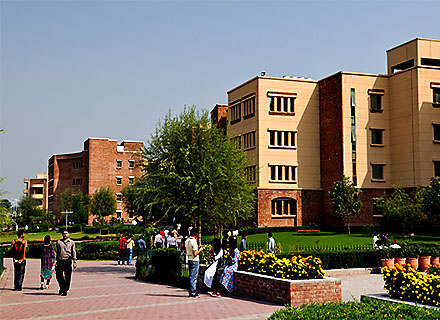Pakistan’s IT education landscape is numerous, encompassing an extensive range of institutions catering to various degrees and specializations in the IT area. These institutes play a crucial role in equipping individuals with the necessary competencies and expertise to thrive in the ever-evolving IT industry.
Types of IT Education Institutes in Pakistan
Universities:
Public and private universities in Pakistan play a pivotal role in the education landscape by offering expansive and inclusive IT programs that traverse the academic spectrum, spanning from undergraduate degrees to the pinnacle of scholarly achievement with doctoral studies. These comprehensive educational initiatives meticulously blend a robust theoretical foundation with immersive practical exposure, ensuring that graduates emerge not only with a profound understanding of various IT disciplines but also equipped with the hands-on expertise necessary to excel in a myriad of roles within the dynamic and ever-evolving industry. The commitment of these institutions is not merely to confer degrees but to mold a generation of professionals capable of navigating and contributing meaningfully to the multifaceted landscape of the IT sector.
Technical and Vocational Education and Training (TVET) Institutions:
Technical and Vocational Education and Training (TVET) institutions in Pakistan specialize in delivering concise yet impactful IT training programs. These specialized programs, which are often shorter in duration compared to traditional university degrees, concentrate on honing specific skills essential for immediate employability in the rapidly evolving IT sector. By offering targeted training, TVET institutions play a crucial role in preparing individuals for swift integration into the workforce, aligning their skill sets with the dynamic demands of the IT industry.
Professional Training Institutes:
Numerous private training institutes offer a variety of IT courses, catering to both individuals seeking career advancement and those seeking to acquire specific skills for particular job roles. These institutes may specialize in programming languages, software development, web design, networking, cybersecurity, or other IT domains.
Online Learning Platforms:
The rise of online learning has opened new avenues for IT education in Pakistan. Several online platforms offer IT courses, ranging from introductory to advanced levels, providing flexibility and accessibility for learners.
Prominent IT Education Institutes in Pakistan
National University of Sciences and Technology (NUST):
Renowned for its engineering and IT programs, NUST offers undergraduate and graduate degrees in various IT disciplines, including computer science, software engineering, information security, and artificial intelligence.

Information Technology University (ITU):
ITU specializes in IT education, offering undergraduate and graduate programs in various IT fields, including computer science, information systems, and telecommunications.

GIK Institute of Engineering Sciences and Technology (GIK):
Situated in Topi, Khyber Pakhtunkhwa, GIK offers a Bachelor of Science in Computer Science, providing a rigorous academic foundation and practical exposure to the IT industry.

Fast University:
Fast University offers undergraduate and graduate programs in computer science, software engineering, and information technology, emphasizing hands-on learning and industry-relevant skills.

COMSATS University Islamabad:
COMSATS University Islamabad offers IT programs at both undergraduate and graduate levels, focusing on areas such as computer science, information technology, and software engineering.

Factors to Consider When Choosing an IT Education Institute
- Accreditation: Ensure the institute is accredited by the Higher Education Commission (HEC) of Pakistan or other relevant bodies.
- Program Reputation: Research the reputation of the institute’s IT programs, considering factors such as faculty expertise, placement rates, and industry recognition.
- Curriculum and Areas of Interest: Make sure the program matches your interests and professional objectives by reviewing the curriculum. Consider institutes offering specializations in areas that align with your desired industry path.
- Learning Environment and Facilities: Consider the institute’s learning environment, facilities, and access to resources such as computer labs and research facilities.
- Admission Requirements and Fees: Carefully review the admission requirements, eligibility criteria, and fee structure to ensure it aligns with your qualifications and financial considerations.
- Career Support and Alumni Network: Check if the institute provides career counseling, placement support, and opportunities to connect with alumni for networking and mentorship.
Conclusion
Pakistan’s IT education landscape offers a diverse range of options to pursue a career in the IT sector. By carefully considering your interests, career goals, and institutional factors, you can choose an IT education institute that will equip you with the necessary skills and knowledge to succeed in this dynamic field.

